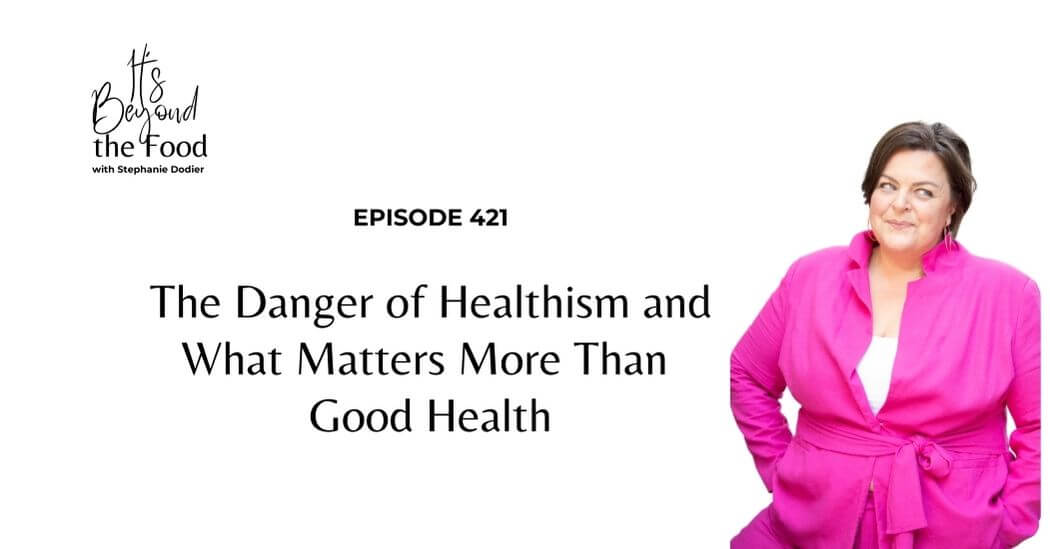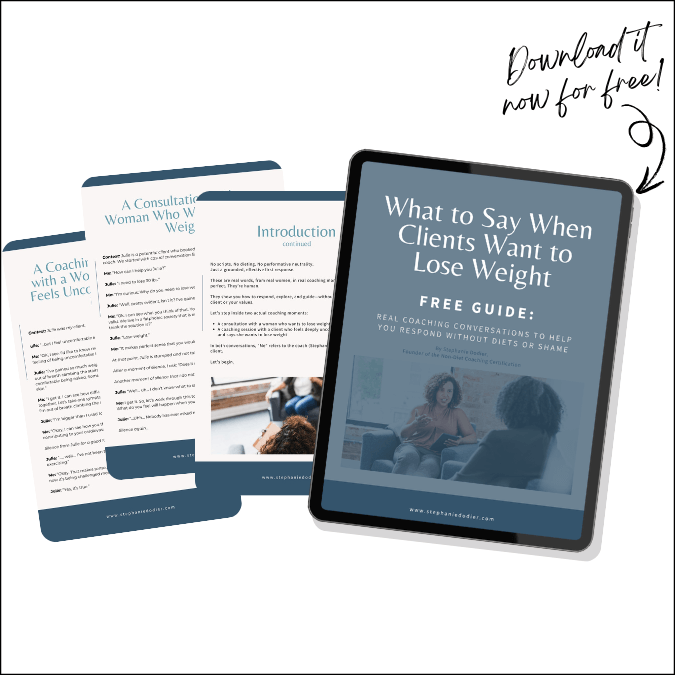
In this episode, I tackled an important and often overlooked topic: the danger of healthism. As we start a new year, many of us feel the pressure to “get back on track” with our health. But what if the way we think about health is actually doing more harm than good?
What Is Healthism?
Healthism is the belief that health is an individual responsibility and moral obligation. The term was coined by Robert Crawford in 1980 to describe how society began to equate a person’s value with their health status and behaviors.
This ideology suggests that improving health is a personal duty. It promotes the idea that achieving “good health” is the key to well-being and worthiness. But this perspective has serious consequences, both personally and socially.
The Danger of Healthism: How Healthism Shows Up in Everyday Life
Healthism sneaks into our daily habits and expectations. What begins as a desire to eat better, exercise, or sleep well can turn into rigid rules and guilt when we fall short.
For example:
- Missing a workout might make you feel lazy or undisciplined.
- Eating something “unhealthy” could trigger shame or self-criticism.
- Tracking every aspect of your health creates stress rather than well-being.
These feelings are clear signs of healthism, where health behaviors become a performance and a source of judgment.
The Danger of Healthism: The Social and Systemic Impacts of Healthism
The problem with healthism extends beyond personal guilt. It also ignores the systemic factors that affect health.
Factors like income, access to healthcare, and social policies play a much larger role in health outcomes than individual choices. For example:
- A person working multiple jobs may not have time to exercise or prepare balanced meals.
- Those living in poverty may lack access to affordable healthcare.
- Societal weight bias excludes larger-bodied individuals from equitable medical care.
By focusing solely on individual responsibility, healthism disregards these systemic issues.
My Personal Experience with Healthism
I spent 25 years trying to perform health, dedicating time, money, and energy to meet societal expectations. When I learned about healthism, it challenged my sense of self-worth and professional identity.
For years, I believed that improving my health was a moral obligation. I blamed myself for health issues and avoided seeking care, thinking I had “caused” my problems. Letting go of healthism required unlearning decades of conditioning and redefining what health means to me.
The Danger of Healthism
Healthism is harmful for several reasons:
- It fuels guilt and shame: Failing to meet health ideals makes people feel inadequate.
- It undermines sustainable habits: When health behaviors feel like obligations, they become difficult to maintain long-term.
- It ignores systemic barriers: Not everyone has equal access to resources that support health.
The pursuit of health should be a choice, not a moral expectation.
What Matters More Than Good Health
Life is about more than health. Your worth is not tied to the number of steps you take, the food you eat, or the size of your body.
What truly matters is how you feel about yourself and the relationships you nurture. Happiness, self-compassion, and connection are just as important—if not more—than achieving perfect health.
Healthism is not just a personal struggle—it’s a cultural issue. By questioning it, we can redefine health and create space for a more compassionate approach to well-being.
What You’ll Learn Listening to this Episode:
- What healthism is and why it’s harmful.
- How healthism impacts personal and social well-being.
- The importance of addressing systemic factors in health.
- How to prioritize self-compassion over perfectionism.







